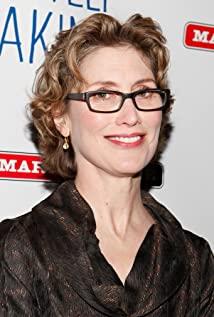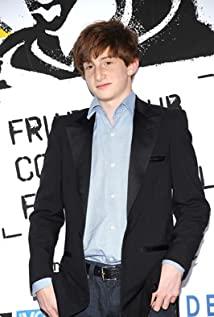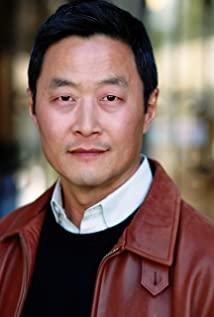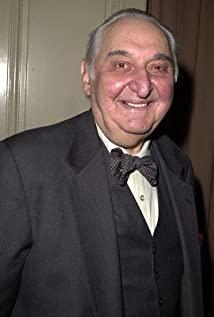The Coen brothers added an eight-minute ancient costume fable to the beginning of the film. An old man who came uninvited by Xueye, his wife stabbed him decisively in the chest, and the old man staggered away, but is he a devil or a normal person? Arguing endlessly has no results. This cleverly echoes the "Schrödinger's Cat" theory described by Gopnick sparing no effort on the podium. In quantum mechanics, the image of "Schrödinger’s cat" metaphors the random state of microscopic particles. Of course, in such a profound academic category, the cat is dead or alive and has nothing to do with ordinary people, but if this randomness is extended to In the realm of daily life and ethics, the God of Chaos inevitably makes everything nonsense. Of course, the audience wants to know, is the old man Xueye a devil?
Kant said that the wonderful thing about this world is that it can be known by us. The only way for us to understand the external world is causal logic. Philosophers will summarize this stuff as "logos". But, is there really a causal connection between changes between things? Quantum mechanics has completely subverted this simple view of knowledge. God has begun to roll the dice. This world is not a step-by-step and orderly operation, but is full of incredible uncertainty.
Gopnik’s split is that he can use a blackboard full of mathematical operations to prove the uncertainty of things (this scene in the dream makes people laugh), but he can’t accept the disorder of order in his life: why he is so good , My wife would fall in love with the old widower next door? Why do you want to make room for your wife and widowers and move out of your house to live in a motel? Why did the widower die in a car accident again? Why does the widower have to organize a funeral for him (my wife's fiance?) when he is dead? Why did someone frame themselves by writing anonymous letters? why why why……
Almost any religion contains a simple report of good and evil, so Gopnik is somewhat suspicious of God (this classic criticism of theism can hardly be spoken by his brother Arthur). He was going to find a rabbi (Jewish priest) to confess, but the unpredictable rabbis either didn’t see him, or they just told a story that they couldn’t even explain themselves—just like we tried our best to understand the fable of the beginning of the movie. The story is the same, Gopnik became even more mad after hearing this.
A very philosophical theme, but the Coen brothers expounded it witty and full of laughter. If you want to describe this comedy technique, you must apply the name of the stock trading software-Great Wisdom.
Poor Gopnik, he didn't know that in life, he was also Schrödinger's cat, and everything did not follow logic.
Nothing is certain. Gopnik doesn't know whether Pu from South Korea wants to bribe him or whether his father paid the bill. However, after thinking about it again and again, he changed his failing grade.
As a result, a dark cloud loomed over the city, and a tornado was approaching. The doctor called and told him that he should have a serious conversation with him about the results of his X-ray physical examination.
The movie is over. What the future will be like that Schrödinger's cat.
Cats are dead or alive, in fact, only cats know.
But in my opinion, the so-called "serious man" may not refer to Gopnik himself, but his son Danny. When he finished his Jewish Bar Mitzvah after smoking marijuana, he met the Jewish old Rabbi Mashak whom his father had always wanted to meet and missed. Mashak returned the Walkman that Danny had been handed over to him during class. At this time, Danny hoped that Mashak could tell some profound truths in life, but the old rabbi just retelled a few words of lyrics indifferently— —It's the song "Somebody To Love" by Jefferson Airplane that Danny overheard in class.
This truth is just like the famous Jewish quote quoted by the Coen brothers in the opening movie: "Accept everything with a simple heart."
We are both Schrodinger's cats, the only difference is whether you can be a calm one.
(Published in "Oriental Morning Post" on March 3, 2010)
The above manuscript is written for the newspaper. It is very short. I feel that many questions have not been clearly written, so I will add a long tail. First of all, the following statement: The interpretation of the following film is purely my personal feelings and analysis. I have no ability or interest to make a clear judgment on the original intention of the Coen brothers (in fact, this is a fake question in itself). Like a mirror, it is not the director, but each viewer himself.
Before entering the text, copy a poem:
If life deceives you,
don't be sad, don't be impatient!
Calmness is needed in melancholy days;
believe it, happy days will come.
Xin'er always yearns for the future;
now it is often melancholy.
Everything is instantaneous,
everything will pass,
and what has passed
will become a cordial nostalgia.
——Pushkin
's friends after watching the movie "Serious Man" or this film review, I believe they will be more impressed with this poem.
In order to make the discussion appears to have layered, chaotic few minutes it:
1. narrative
mainly from the structure of talk about it, "A Serious Man," the narrative structure is not complicated, but with a quite exquisite.
A. flashback
flashback is actually difficult to use, do not be upset the whole narrative structure, but Cohen brothers to make us a good example. There are three main types of narratives in the film: the opening prologue; the story told by the second Jewish rabbi in the film; and the dreamland of the protagonist Gopnik repeatedly.
Let me talk about the opening title first, and the specific meaning of the story in point 4. From the structural point of view, this opening overture played a role in bringing up the whole film, which reminds me of Tarkovsky's "Mirror" and "Andre" "Lee Rublev", the former uses a hypnotist to treat patients with stuttering; the latter uses a Russian medieval peasant invented a hot air balloon to travel to the sky, concise and clear. Compared with the old tower, the prologues used by the Coen brothers are more jumping on the background of time and space-the two prologues of the old tower are the same as the time and space of the film theme, but the two Coen brothers directly traveled from the 1960s to the Middle Ages, and the location also changed from The United States has rushed to Europe, but due to the same Jewish background, the connection between the prologue and the text is less obtrusive (Interestingly, almost all the movies in the old tower have a prologue structure: as in the beginning of "Solaris" The earth scene of "Sacrifice" at the beginning of Alexander’s eight-minute chatter).
The structure of the story told by the second rabbi is the same as the opening prologue, so I won’t repeat it.
Gopnik’s dreams bluntly reveal the protagonist’s inner activities, mostly his nightmares, expressing his dissatisfaction with the status quo and the release of his desires-this is a simple copy of Freud's theory. The dream is not good enough to make the whole film fragmented, but the two brothers Coen have a good structure. Once Gopnik is hit, he will release it through dreams, and then continue to live his "serious" life. Reality Zhang, Mengjingchi, one by one, the rhythm is stabilized.
In addition, I have to talk about the subtitles. In the main body of the film except the prologue, the two Coen brothers added three subtitles, indicating the process of Gopnik meeting with three rabbis to seek confession, and the film can also be divided into three. Paragraph, but from the overall narrative point of view, removing these subtitles has no effect on the subtitles. It should be said that the subtitles are equivalent to the emphasis number, and its emphasis function is greater than the structure division function.
B. The single-player and multi-line
"Serious Man" takes Gopnik as the core. All characters and story clues are developed around Gopnik. Gopnik becomes the basic point of the narrative structure, and his life time is the clue. Spreading out the stories one by one naturally conforms to the viewing habits of most viewers. Therefore, although there are many narratives in the whole film, it does not affect the stability of the overall structure. Gopnik has made great contributions.
It is worth noting that everyone plays for Gopnik, but there is one person who is relatively independent: Gopnik's youngest son Danny. Others’ mental journeys are fragmented, appearing in the play to create drama contradictions for Gopnik. Only Danny himself has a relatively complete life path to show, as well as his own growth and mental journey. The film surrounds Danny, and some auxiliary characters are arranged specifically for him, so Danny can also be regarded as a double line. Of course, relative to his father, Danny is still in a secondary position.
To put it aside, there is a secondary clue that is difficult to see, that is Gopnik’s brother Arthur. This person mainly appears in the film as Gopnik’s family burden, but his personal Experience can also be simply outlined. Compared to others, Arthur is somewhat independent. There are three clues that can make sense, but it's a bit far-fetched.
What's interesting is that the three of them are all a family, and they are men, and they will fool you in the third point.
2. Comedy
I see "A Serious Man" Xiaofan, humor than N, and surprise, but impressed. What is humor? Chaplin is, and so are Coen brothers. And Cohens are very black, with weird taunts, unparalleled in the film world.
Much of the humor in the film is shown in details, and the overall narrative is calm, but when you relax a little bit, the two Cohen brothers have a pleasant surprise: Gopnik is being upset by the lawyer, so a fat and old guy comes in. Holding a thick stack of files, the old man in the shape of KFC grandpa suddenly stood up and stared at Gopnick. Lao Ge was shocked. Just as the audience was accompanied by Lao Ge, the old man fell to the ground with a heart attack and died. ——This scene is said to be conceived by the Coen brothers for Clint Eastwood; and the Walkman that Danny borrowed (borrowed to buy?) was confiscated by the teacher, and the loaned little fat guy always wanted to find a chance to beat him. Danny had a meal, but whenever Danny passed by Little Fatty’s house, he always ran away. Little Fatty was out of breath but couldn’t keep up. When Gopnick drove, he saw the Korean student Park who wanted him to change his grades, Gop. Nick stretched his middle finger to vent, and immediately chased the rear of the car in front of him; and his wife and the widower next door were planning to get married, but Eberman died suddenly in a car accident (edited in parallel with Gopnik rear-end). After the death, Eberman had the first seven (Shiva) at Lao Ge's house, and the police came to investigate, and Lao Ge's words reached his lips and swallowed again-could it be said: "I am doing the first seven for my wife's fiance? "; In the end, the old Rabbi Mashak carried the rock lyrics on his back, which made people even more laughable; all these and other things-almost all the sections contain comedy, this is the biggest of "Serious Man" Aesthetic characteristics.
The details also include lines. For example, there is a classmate on Danny’s school bus, a Fucker, She is fucker, He is Fucker, Both are Fucker, and they are full of joy; there are also Gopnick’s neighbors, father and son, when Lao Ge and When he was arguing about the limit of the fence, the hunter father tugged a Measure (measure!), which matched his Nazi style very well-the dead deer on the top of the off-road vehicle was also very cool.
The details also include the styling. Gopnik’s daughter Sara is very prominent. The ill-fitting black-rimmed glasses and a somewhat slanted posture set off an uninviting silly girl; and the two neighbors are stunned. His short hair, Nazi style, Mrs. Samsky’s always blurred marijuana eyes, and Gopnik’s colleagues’ old nerd outfits all fit the character’s identity.
Having said that, "Serious Man" is full of tears with laughter, very bitter. Gopnick is a good gentleman, who should be loved by everyone like Raymond, but almost mixed in the situation of wives. , Isn't it embarrassing?
This comes to the third point.
3. Patriarch
"Serious Man" is a not very serious translation. The title of the film can also be translated as "Serious Man", but the word Man in English can refer to both men as well as humans and people in general. . The two Cohen brothers may have unconsciously used the masculine meaning of the term in English. In fact, throughout the film, "Serious Man" is indeed a story about men.
Gopnik's wife Judith has no other effect except for ganging up with the old widower. This is the image of a bad wife. Daughter Sara is even more indifferent, just highlighting Gopnik's family burden. Mrs. Samsky is a seductive stunner-Gopnik's erotic orientation, coupled with a few dispensable images of elderly female secretaries, there is no decent woman in "Serious Man".
Gopnick needless to mention, as I said before, Danny's story cannot be ignored. When his father fell into an inexplicable predicament, Danny came out of desperation, successfully completed his Bar Mitzvah (Jewish Bar Mitzvah), and recovered from the loss of the Walkman. Danny’s biggest dilemma was eliminated and he became a candidate. Pure man-the so-called Serious Young Man.
Arthur is very cool, this is a rain man, when he is critically mentally handicapped and has to rely on Gopnik to take care of him, it is really pitiful. But looking at his notebook, Gopnik was astonished at the mathematical genius he might have. In fact, when Gopnik was evicted from the house and stayed in the motel in the film, the two brothers couldn't sleep at night. After Arthur cried, Gopnik hugged him in the abandoned swimming pool, tall and rickety. Se cried like a child—is it an adaptation of the real experience of the Coen brothers?
The big villain, Ser Eberman, is also a man. After his death, he was still in the shadows and became Gopnik’s heart demon. Ren Liu's holding Lao Ge's hand, a political commissar in a conversation posture). In a dream, Eberman grabbed Gopnick's neckline and bumped it against the blackboard, shouting: I fucked your wife! ——These words are the fate of almost all heterosexual men. It seems that Judith is nothing more than the subject matter of male competition between Eberman and Gopnick. For men, the enemy is also a man. Eberman claims to be "A Serious Man" everywhere. This goal has become the sword of Damocles hanging over Gopnik's head. Around the title, we can see: Gopnick wants to be A Serious Man, Eberman is already A Serious Man, Danny seems to be A Serious Man soon, and Arthur does not understand why his Hashem (Jewish God) Don't let him become a serious man-so, this is a man's play, the solution is how a man is "serious" and how to be a pure man.
The two Coen brothers almost only film men's movies, and the same goes for Oscar's "Old Nowhere". It's understandable that you can shoot whatever subject you are familiar with.
Because of this, we can also regard this film as a story reflecting Gopnick's midlife crisis and the troubles of Danny's growth-pure men's. Based on this, the film can also be interpreted as a description of the crisis of the middle-class family. Gopnik’s family is a typical middle-class American, and the district he lives in is also a typical middle-class community (the entire community does not see people of color appear, is it legendary? Restricted Community?).
4.
Why is the anti-teleological-deterministic world view "Serious Man" an independent film? It is because the plot is a little bit obscure, almost all of this obscurity comes from the anti-teleological-deterministic worldview in the film and its extension to the Jewish faith.
A. Schrodinger’s cat①
This is an important metaphor. Gopnik teaches this on the university forum, but he can only accept it in the field of mathematics and physics. This thing involves quantum mechanics. I can’t understand or explain it clearly with mathematics. The understanding of popular science is that things are random and God has rolled the dice. The meaning used in the film should be related to the Heisenberg uncertainty principle and ERP paradox. It is the same thing-of course these are all concepts of modern physics, and the two Coen brothers are not professionals, and the use of the film is also a metaphor for the life world.
Newton's classical physics system is Zhou Yan, in the deterministic sense, the universe follows a step-by-step process, and everything can be calculated by mathematical formulas. In other words, in Newton's mathematical system, contingency has no place-you don't know if it is because the data is not collected, the experimental conditions are not enough, or your math is not good enough. But Schrödinger’s poor cat told us that you have collected the data, the experimental conditions are mature, and the mathematical formulas are sufficient. However, my dear, the cat is always trapped in a dead/alive mixed state. The death of a cat depends on whether you observe it or not-Fuck! This is a random event!
Quantum mechanics blasted the tightly connected universe established by classical physics. Physicists have mastered the law, but the ultimate law is: there is no law (a random law is logically equivalent to no law). A liberal arts student like me is better. I don’t understand it. Many physics experts can’t stand this. After Einstein’s theory of relativity was published, several physicists of Newton’s classical mechanics committed suicide one after another because they couldn’t stand this. -Mathematics fails, and the meaning of the universe and life is completely emptied.
= Randomness can be seen everywhere in "Serious Man", everything is in a specious state of chaos. From Gopnik’s point of view, he could not understand why these things happened around him; from the audience’s point of view, he was as confused as Gopnik about the real situation-whether Pu gave a bribe to Gopnik. ? Who wrote the anonymous letter to frame Gopnik? Is Arthur an idiot or a genius? Did he commit gambling and sodomy? Who spends huge bills at the record club again? Why did the tornado hit in the end? What exactly are Gopnik’s X-ray results? Everything is a question mark-and in this way, the prologue story of the opening is not difficult to understand: the old man is a man or a devil, in fact, it is unpredictable, everything is in random chaos.
But having said that, randomness also has its cuteness. In my opinion, the standard for distinguishing feature films and documentaries lies in the size of randomness; and the so-called eternal theme in literary works also has its charm. Random——Zixia’s random love to Supreme Treasure, isn’t it just going back to the ancients?
Gopnik in life is like that Schrödinger's cat, inconsistent and specious. If the cat is confined to the field of quantum mechanics and has nothing to do with the people, once it is extended to daily life, Gopnik will be in big trouble. Gopnik rejects contingency. He is accustomed to step by step, and believes in the retribution of good and evil and judicial justice. It actually means that Gopnik follows the rules and cannot accept chaos and randomness). Furthermore, Gopnik is a devout Jew, so the following situation arises-
B. Difficulty in theological debates in the context of Judaism ②Perhaps
because of his Jewish origin, the two Coen brothers have been in the film. Talk about Judaism. When Gopnik was in trouble, he began to seek answers from the rabbis. This led to the emergence of theological debates in the context of Judaism—the so-called theism is the beginning of Leibniz’s creation of the term Theodicy. The problem of theism comes from defending the relationship between God and evil: if God is omniscient, What is all-powerful and all-good, why is there evil?
The evil is implemented in Gopnik's place, which is the dilemma he encountered-he believes in Hashem, and he also asks Hashem's spokesperson for help, but why has Hashem made himself so embarrassed? Gopnick didn't speak bluntly. This argument was directly caused by his brother Arthur's cry in the abandoned swimming pool. Arthur cried bitterly and questioned the sky (Hashem) why he was so unfair to himself—this is a question of ordinary people's theism. For a monotheistic believer, where does the evil in the world come from? Isn't the existence of evil contrary to the Godhead of God?
Pulling out theism from the Christian background, the ancient Greek Epicurus has already issued the theological debate, but Plato has his own solution derived from the ancient Greek cosmology (a digression, Whitehainer The sentence "The entire history of Western philosophy is giving Plato's footnotes" is really correct. All the problems of modern Western philosophy have been fooled by the wealthy and wealthy people of ancient Greece.): Starting from Plato's "De Muge" god of the world , Plotinus’s "overflow theory" is a culmination of the fact that evil itself does not have an independent personality, but is interpreted as a lack of good and indispensable for the integrity of the universe. After the rise of Christianity, St. Augustine inherited the Greek sages, and put forward the theological view that man’s free will is the source of evil (and the so-called "aesthetic theology", although logically cannot be carried out to the end, it has also become a later generation. One of the theoretical sources of conservatism).
However, Duns Scott used the non-aesthetic theology of occasional to provide another solution. According to this statement, occasionality replaces the theological cornerstone of teleology-determinism. Everything is accidental. Even God’s creation of the world is accidental. God can create or not, and can cause this or that (this is in line with the concept of "Schrödinger’s Cat"). Therefore, the connection between God and his creation is also accidental. ——So, God is hidden, and the will of God is unpredictable for mortals (Hannah Arendt of later generations further summed it up as "evil is the price of freedom", which is clearly related to the inheritance of Duns' thoughts. Hannah also called Duns. As "the world's first liberal thinker").
In this way, it is not difficult to understand the incident in which the Jewish dentist found Hebrew characters in the teeth of Goy (non-Jewish) patients described by the second rabbi. To apply the view of the Catholic theologian Scott: Hashem meant mortals. It is unpredictable, Hashem is omnipotent, and Hashem's creation is entirely from Hashem's absolute will. Therefore, there is no answer. As a believer in Hashem, you can only honor him with joy. In this way, Arthur’s accusation has also been resolved. What Hashem gives you and what not to you is determined by the all-knowing, all-powerful, and all-good Hashem. How can ant mortals know themselves?
In layman's terms, as a believer, your small, humble personality is only occasional and random under the eternal and infinitely glorious Godhead of Hashem, with unsatisfactory grace and unpredictable power. Therefore, the Coen brothers quoted the famous Jewish rabbi Rashi in the beginning of the film: "Receive With Simplicity Everything That Happens To You" is not difficult to understand—whatever Hashem wants, you can do it. Don't want to question Hashem. For Hashem's creation, Hashem is hidden. From this point of view, the attitude of the second rabbi is in fact completely in line with the non-aesthetic theological concept-not to explain is the true worship of God, is to respect Hashem, Gopnik keeps wanting to hear the explanation. In fact, he introduced his mathematical temperament into his religious beliefs.
Of course, these theological thoughts are all under the background of Christianity. The connection between God and creation is occasional and hidden. Therefore, the focus of Christian theology has shifted from the triune God to the second Jesus Christ, which is called "theology of the cross". ". It is precisely because of this that Jesus' dying call in the event of the cross: "My God, my God, why have forsaken me?" (Mark 15:34) is understandable. In the aesthetic theological thinking system, God is indifferent and lofty; while in the non-aesthetic theological thinking system, God’s omnipotence makes creation an occasional existence, and God also awakens the world bloodly through the cross incident: human possession The secret of freedom lies in the contingency of accepting and bearing the creation—that is, the believer is just an occasional "Schrödinger’s cat" under the glory of God, and the contingency of accepting and bearing lies in You have to "be a calm one."
The Theology of the Cross also successfully responded to the crisis from "protesting atheism". In fact, Arthur's swimming pool cry can also be regarded as an expression of "protesting atheism". In fact, "protesting atheism" and aesthetic theism (And "philosophical theism") is following the same principle: trying to use creation as a mirror to see the figure of God from it-this of course has been hit by non-aesthetic theism.
In the context of Judaism, Gopnik's experience can also be compared to the present Job. To avoid trouble, I will not comment on the Old Testament records. Some commentators have summarized the process of Job’s character change recorded in the Old Testament into five stages of "disgust", "suspicion", "resent", "reprimand" and "defense" ③, but Gopnik has reached " During the stage of grievance and scolding, Job-style defenses have never been issued. The defense in the film was issued by Arthur. Looking directly at the content of Arthur's defense, he had the same intention of questioning God's injustice like Job, but Arthur did not go through the process from once possessed to inexplicably lost, and he was addicted to it. In the calculation of the random rate of the universe, his mentality and circumstances are naturally incomparable with Job. Moreover, it makes sense to examine the defense in the film only if the circumstances of Gopnick and Arthur are connected (also known as Gopnick’s defense through Arthur’s mouth), so this defense is more similar to a classic The expression of the theological defense, rather than a simple Job-style defense (of course, from a philosophical basis, the Job-style defense can also be regarded as a specific expression of the theological defense).
The way that Christianity solves the theological dilemma caused by non-aesthetic theology is to lean towards the theology of the cross. How does Judaism solve the Job problem? It's interesting. To carefully interpret "The Serious Man" from the religious background, it must involve a comparative study of Judaism and Christianity, which is beyond my level of knowledge. However, the cross incident is clearly a watershed between Christianity and Judaism. How can a Jew who does not recognize the gospel accept a Hashem who has only an occasional and hidden connection with him? Do Jews who do not recognize the Apocalypse have the idea of how to accept Eschatology (eschatology)?
The two Coen brothers gave Gopnik and Job a completely different ending at the end of the film. Jehovah later blessed Job N’s large livestock and children ("Job" 42), but Gopnik just changed Park. The classmate's grades received a call from the medical examiner, and his X-rays were unclear (Hashem punished him?), and then the dark clouds fell outside the window and the tornado dropped. Danny and his classmates looked at the rising storm in the distance, and a sense of Eschatology emerged spontaneously. Could this be the metaphor of the Coen brothers for the final judgment? This is against Judaism, right?
In short, the whole drama contradiction in "Serious Man" uses "Schrödinger's Cat" as the core metaphor, and then develops into a crisis of faith in Judaism. According to the plot in the photo, it seems that honoring the gospel is the only way out, but this is a betrayal of the Jewish faith-so I really want to know the attitude of the mainstream Jewish community in the United States towards this film.
5. Cohen flow
from "Blood Simple" to "A Serious Man," the Coen brothers style has reached a pinnacle. If it is, works such as "Money Empire" and "Old Woman Killer" are somewhat commercial compromises, then works such as "Serious Man" belong entirely to Brother Cohen.
The two Cohen brothers also did not use big-name stars in this film. Most of the actors were from TV series. Among them, Simon Herberg, who played the first acting rabbi, impressed the Chinese audience the most, because this buddy played in The Big Bang Theory. "The performance of "is memorable-it is worth noting that Herberg also played a Jewish engineer in TBBT (he always emphasized that he had a degree at MIT).
The film’s image style is very plain, with short scenes in the parents’ house with short light and shadow design and camera switching. The rough look is no different from a family-themed TV series, but the editing of the two brothers Coen is very clever, humorous and polyphoric—for example, when Gopnik is behind the scenes. The scene was edited in parallel with Eberman driving. Old Ge cut a shot of Eberman turning before he crashed, and then there was a "bang". Although it came from the sound and picture of Lao Ge’s rear-end collision, it obviously also buried Eber. Man foreshadowed the accident. The other lenses are very plain, without dazzling skills, and most subjective lenses are used. Dreams and dizziness after smoking marijuana are also commonly used image languages.
The personal styles of the two Cohen brothers have become so well-established in "Serious Man". To borrow the term "Serious Man", you can regard "Serious Man" as a masterpiece of "Cohen Stream".
It must be pointed out that the theme of "Serious Man" is actually something that the Coen brothers have been thinking about for a long time, especially the younger brother Ethan Cohen, who had a degree in philosophy in Princeton, and the title of his graduation thesis was Two. Views of Wittgenstein's Later Philosophy ("Two Views on Ludwig Wittgenstein's Later Philosophy"). Who is Lao Wei? The leading philosopher of the 20th century, it is worth noting that Lao Wei spent the last part of his life thinking about certainty. His final thoughts were also published in the book "On Certainty". Of course, sexual suspicion became an important clue to the later philosophy of Victorinox. Ethan Cohen was entangled in it when he was in college. This time he finally used the movie as a tool with his brother to have a total outburst of thinking-the background of Judaism was completely From the background of the two brothers.
One more thing, Wittgenstein is also a Jew, but he believes in Catholicism (although his way of belief is very different from ordinary believers).
From this point of view, things became clearer-Gopnik had to convert sooner or later.
Only in this way can he become a noble person, a pure person, a person who has escaped from low-level tastes.
Only such a person is a serious person.
① The main reference for this paragraph: Cao Tianyuan, "Does God Throw the Dice-History of Quantum Physics", Liaoning Education Press, 2006.
②The main reference for this paragraph: Lin Guoji, "The Tradition of Social Contract Theory in the Context of Theology", Shanghai Sanlian & East China Normal University Press, 2005.
③Refer to: Zhou Ping, "The Significance of Job's Character to the Conversion of the Concept of Crime and Punishment", in "Journal of PLA University of Foreign Languages", Issue 4, 2000.
④ This book also has a Chinese translation: Wittgenstein's "On the Certainty", translated by Zhang Jinyan, Guangxi Normal University Press, 2002.
View more about A Serious Man reviews











